Overview
- Canada is situated in north part of North America. It has 10 provinces and 3 territories that broaden from the Pacific to the Atlantic Ocean and north side is the Arctic Ocean, Canada is covering 9.98 million sq km making it the world’s 2nd largest country by total area.
- The Northern parts of Canada are quite scarcely populated as 90% of the population stays within 100 miles of the southern border with United States. Ontario, Quebec, British Columbia & Alberta are the 4 most populated provinces. Toronto, Montreal, and Vancouver are Canada’s largest three metropolitan cities and Canada’s capital is Ottawa.
- Canada is a highly advanced country that makes it to the list of top 10 countries globally in terms of nominal per capita income as well as human development parameters. It listed among the topmost in international measurements of government transparency, economic freedom, civil liberties, quality of life and good education. In addition to a high standard of living, the country offers numerous opportunities as it is a global leader in the field of Aerospace, Pharmaceutical, Telecommunication and Biotechnology. Moreover the Crude oil reserves in the Northwestern region make it one of the largest suppliers of oil to the rest of the world.
- More than 21% of the Canadian population was not born in the country. Every year the country accepts approximately 300 thousand immigrants & targets to accept another 1.2 million new people in next 3 years up to 2022. Country’s immigration policy is a very well devised plan to encourage skilled & young resources to make their life in the country while adding tremendous value to the economy. It involves participation from immigration authorities, Government bodies & most importantly universities and colleges.
- At Flamingo Educare, we believe in delivering transparent and honest guidance for a life and career in Canada. We not only match you with ideal academic institution for your profile and interest but also for making a life in the country after your education. Equipped with up to date knowledge & partnerships with more than 70 institutions across Canada, we are well placed to make your Canadian dreams come true.
- Official NameDominion of Canada
- Form Of GovernmentConstitutional monarchy with Canadian Parliamentary System
- CapitalOttawa
- Population37,742,154
- Official LanguageEnglish and French
- MoneyCanadian Dollar (CAD)
- Area3,855,100 square miles (9,984,670 km2)
- Major RiversThe Mackenzie River, Yokon river, Saint Lawrence River
- GDPTotal - 1.6 Trillion (Nominal, 2020 est.) Per Capita - $46,195, (2019)
Why Study In Canada
Accommodate around half of one million international students, Canada is known for its great value education at good economical tuition fee with valuable degrees that are universally accepted. And it a great value of life, Great post study work and immigration convenience.
Why Canada is a great choice for Study, the top best few reasons are as below:
- Academic excellence:
Why students want to study in Canada, One of the most substantial logic is because of the best quality of education. When a student gets a degree from a Canadian university, it works well for their future.
- Ample research opportunities
Why Canadian education is good, one of the best reasons is because of its powerful goal on development and research. If you want to do study in research field, there will be no country better than Canada.
- Affordable, falls in budget
Tuition fee in Canada very affordable, when distinguished to universities in the UK and US, is justly low-fee. You can also apply for scholarships to lower down on your educational cost.
- Earn while you learn
Canada allow its all international students to work for up to 20 hrs every week during their term and full-time in the summer and winter holidays. If you working on campus or as an intern in any in organization, you do not require any other work permit as your study permit works good enough.
- Immigration opportunities
Canadian government allows students to stay in Canada and eligible to work up to 3 years after finishing of their graduation or education under Post-Graduation Work Permit Program. If you achieved work experience after that you can apply for permanent residency.
- Safe and peaceful
In 2018, Canada has been Ranked safest country in the world and it ranked 6th peaceful country in world.
Do you have questions regarding Study In Canada ?
Top Universities
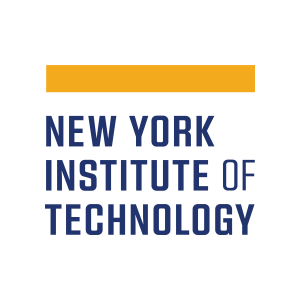 Established in : 1955 Approx Fees : 19,030 CAD - 20,030 CAD |
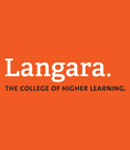 Established in : 1994 Approx Fees : 21,375 CAD - 22,375 CAD |
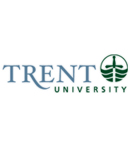 Established in : 1964 Approx Fees : 21,294.1 CAD |
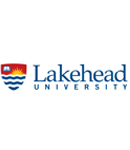 Established in : 1965 Approx Fees : 24200 CAD - 25,200 CAD |
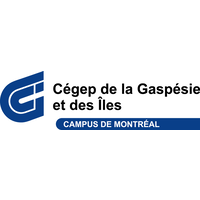 Established in : 1967 Approx Fees : 12,000 CAD - 13,000 CAD |
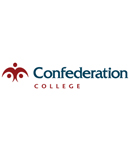 Established in : 1967 Approx Fees : 12,995 CAD - 13,995 CAD |
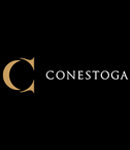 Established in : 1967 Approx Fees : 6,900 CAD - 33,630 CAD |
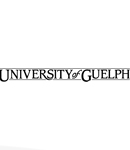 Established in : 1964 Approx Fees : 35,467.3 CAD - 36,467.3 CAD |
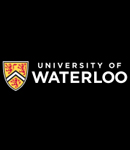 Established in : 1959 Approx Fees : 11,061 CAD - 12,061 CAD |
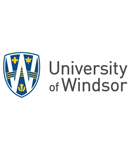 Established in : 1857 Approx Fees : 29,714 CAD - 30,714 CAD |
Top Courses In Canada
- MBA:
A degree obtained from Canada in the field of Business benefits in students. A leading business national, the business courses, especially MBA in country, are most sought after and highly identified the over world. Degrees in business provides students a comprehensive education of the business world and make ready them with industrial skills, self confidence to efficiently and effectively manage tasks and adapt to the ever changing business environment.
- Computer Science & IT:
Computer science programs share a close relation with network administration, Internet, telecommunication, computer engineering, e-commerce, robotics, information systems and general technology programs. Students can pursue a diploma, undergraduate degree, post graduate diploma and masters in Computer Science at the Canadian institutions.
IT courses target on the development of theoretical foundation for computer systems and information, and its applications. As an IT student in country, you will have the choice to specialise in fields like computer networks, virtualization technologies, windows server administration, programming, IT security, disaster recovery, web technologies, information databases, and multimedia.
- Business & Finance:
Business management courses are the hottest category as far as foreign candidates are concerned. MBA is one of the most sought after courses in this area. The fields of management consulting, banking and investment finance never go out of style. The demand for managerial heads in the various industry areas is only rising. Still, it would be recommended to specialize by taking up Statistics, Accounting or Finance instead of doing a general MBA since it has more niche value.
- Core Engineering & Engineering Management:
Engineering and the IT areas in country has always been great valued. Some of the best courses are Computer Engineering or Software, Chemical Engineering and Mechanical Engineering. Professions in this industry are the topmost paid in and around Central Canada, in region such as Quebec and Ontario.
- Physical & Earth Sciences and Renewable Energy:
B.Sc. in Renewable Energy is a three year undergraduate course, the minimal qualification for admission to which is the successful completion of the 10+2 stranded of education.
- Agricultural Science & Forestry:
The increase in the worldwide population has been causing various problems including global warming, climate change and food security. Agricultural Science can play a main role in resolving those problems. Therefore, like India and other international nations, the job prospects of agricultural science & forestry are excellent in Country. Typical job positions include agronomists, agricultural scientists, forestry consultants, and agricultural consultants.
- Biosciences, Medicine & Healthcare:
As long as there is life on our planet, the importance of medicine, biotechnology, biological sciences, and pharmacy will always be there. The field of life and biological sciences is broad, exciting and interdisciplinary. The field demands a lot of perseverance and tenacity. Since you will be handle with the most complex machine in the universe (human body), you need to be highly skilled and qualified. Additionally, it’s a research oriented field. So, more often than not, a Ph.D. is mandatory.
- Media & Journalism:
With the increase of digital media, online marketing, social networking sites, the demand for skilled professionals in those areas is also rise exponentially. New age career paths like digital & interactive design and digital marketing are taking over the traditional ones. Additionally, banking sectors and technology are also actively looking for creative talent like UX/UI design.
Do you have questions regarding Study In Canada ?
Cost Of Study In Canada
| S.no. | Study program | Average annual fee |
| 1 | Undergraduate program | $13,000 to $20,000 |
| 2 | Postgraduate master’s degree | $17,000 to $25,000 |
| 3 | Doctoral degree | $7,000 to $15,000 |
| 4 | MBA | $30,000 to $40,000 |
Where Can The Student Stay? And Whats Can Be The Accommodation Cost?
- Most universities in Canada offer on-campus residence facilities for international students.
- You can also choose off-campus accommodation and you can choose to share apartments with other students from India. On-campus accommodation expenses may start from approx CAD 8,000 to CAD 10,000 (annually) and living in a shared apartment can cost will be approx CAD 400 to CAD 700 per month depending upon which area you are living and time of the year. Always remember, the rentals is depends on city to city.
- Another option is a homestay where you stay with other people of family in Canada in their home. In case, you will have to pay initial fee of Canadian dollar 200 and fee of approximately Canadian dollar 750 – 950 a monthly in return for meals and a room.
- Dormitories are the other option for student to stay economically in Canada. About all the universities in Canada have dormitories in or near by the campus and these dormitories have all the facilities like, kitchen, laundry, washrooms, meal plans, etc.
Living Expenses
- For your emergencies, grocery shopping and social activities you need to keep a little money separately. If you are living in out of country for study, it is always suggestible to keep track of your expenditure so that you will not overspend. Considering diversified expenses and living costs, a single student cost will comes out to be approx. Canadian dollar 15,000 (indicative).
- Communication expenses: If you are studying in out of country you need to keep a section in your budget to calling your family members friends and relatives. Check all calling plans and go for cost effective plan. You can count approx Canadian dollar 20 per month.
- Books and supplies: If you are studying in Canada purchasing textbooks can get a little bit expensive for example if you want to buy engineering books it can cost you approximately CAD 250 to CAD 350 and for pharmacy and medicine books cost you little higher. But you can manage this expenditure in your budget to purchase second hand books or even securing a library membership.
- Personal expenses and incidentals: you have to count your day to day expenses like – laundry, toiletries, clothing, dining out, etc. Your expenditure are depends on which the types of style of living you choose for yourself.
Can I work while studying in Canada? How much can I earn?
- Indian student can work 20 Hrs per week during their academic sessions and full-time (40 Hrs per week) during vacations or holidays because they are having Insurance Number (SIN) that allows permitting to work there.
- Students can work on campus or off campus during their education and can manage to earn a wage of 8 – 10 CAD per hour.
Do you have questions regarding Study In Canada ?
Career Opportunities In Canada
Economy:
- The economy of Canada is a greatly developed market economy. It is the 10th biggest GDP by nominal and 16th biggest GDP by PPP in the world.
- Canada has the 3rd topmost total estimated value of natural resources, valued at US$33.2 trillion in 2019.
- It has the world’s 3rd biggest proven petroleum reserves and is the 4th biggest exporter of petroleum.
- It is also the 4th biggest exporter of natural gas. Canada is considered an “energy superpower” because of its sufficient natural resources and a small population of 37 million citizen relative to its land area.
- Canada is one of the least corrupt countries in the world and is one of the world’s top ten trading country, with a highly globalized economy.
- During the 20th century, manufacturing industries and services became progressively important. Mining and agriculture accounted for less than 5% of Canada’s workers force, during manufacturing stood at one-fifth and services, including trade, transportation, finance and other activities, employed almost three-fourths of the workforce by the end of the 20th century.
- Foreign trade makes up a biggest part of the Canadian economy, particularly of its natural resources. Agriculture, energy, mining and forestry exports accounted for about 58% of Canada’s total exports in 2009.
- In 2009 Machinery, automotive products, equipment and other manufactures accounted for a further 38% of exports.
Job Market In The Canada
- The Canadian job market is same like other grown Nations. The major jobs are available in the service sector, natural resources – gas and petroleum and manufacturing- paper, aerospace, automobile, machinery, food to clothing.The major Canada’s economic development is depends on four major cities Toronto, Calgary, Montreal and Vancouver.
- If you are searching for jobs you required to speak official language of Canada. Canadian companies required such employees who are able to speak English-French both language.
Average Salaries In The Canada
Right now the topmost paid career in Canada is expert Physician. They can earn CAD 86.75 hrs. Based on a full-time 40-hrs every week, their yearly income would be CAD180,440.
- Specialist Physicians – CAD180,440
- Dentists – CAD149,760
- Petroleum Engineers – CAD130,520
- Engineering Managers – CAD116,600
- University Professors and Lecturers – CAD120,848
- Other Managers in Public Administration – CAD117,000
- Geoscientists and Oceanographers – CAD115,440
- Commissioned Police Officers – CAD112,944
- Chemical Engineers – CAD112,736
- Senior Government Officials and Managers – CAD115,336
Top Trending Jobs Or Careers In Canada
We’ve listed some of the usual procedure with the topmost salaries after the completing graduation. This is by no means a complete record. You can get good job and great income in other areas also, particularly after you earn experience progress to administrative or organizational post.
- Dentistry Degrees
- Medicine Degrees
- Nursing Degrees
- Law Degrees
- Engineering Degrees
- Computer Sciences Degrees
- Business Degrees
Basically the Canadian enterprise/companies announce a ranking with the best employment in Canada. As per their research here are the topmost 10 careers in 2019
- Nurse Practitioner
- Dentist
- Utilities Manager
- Power Systems Electrician
- Mining and Quarrying Supervisor
- Pipefitting Supervisor
- Engineering Manager
- Scientific Research Manager
- Public Administration Director
- Construction Manager
Do you have questions regarding Study In Canada ?
Immigration & Settlement In Canada
How Many Years Of Post Study Work?
The PGWP grants foreign students those who have finished a course of at least 8 months’ period to stay on to work in country for upto 3 years, this knowledge/experience can counted against a upcoming application for permanent residency in country.
Eligibility criteria for PGWP
- Your education period should be at least 8 months and you must have studied entire time in Canada.
- You can apply for a work permit in a period 180 days of finishing your study. You must have written authored evidence or proof from the college/university signify the same, like an official letter from college or transcription.
- You must have a valid student visa if you trying/applying for the PGWP.
Duration
The points are as below of the official length of your program of study
- Less than 8 months: you are not suitable for the PGWP program
- Less than 2 years but more than 8 months: can apply for work permit for a time equivalent to your study period.
- 2 years or more: you will be allowed a work permit of 3 years
Can I apply for a PR after my education?
There are many Canadian immigration choices for students who are studying in a program in Country for at least 2 years. Pupils with previous experience in Canada are more attractive to Canadian employers, and because of the superior quality of Canadian schools, Canada is eager to retain international students that have graduated from its educational organization.
After 1 year of completion of full time employment, students can apply for permanent residence in Canada under any of the below 3 programs:
- Canadian Experience class & Express Entry
- Quebec Experience Class
- Provincial nominee program of Alberta, British Columbia, Manitoba etc.
Do you have questions regarding Study In Canada ?
Education System & Admission Requirements In Canada
Various Intakes
Canadian universities and institutes arrange 3 intakes. In few institutes, intakes can also be described to as a semester. The three intakes in Canada are:
- Fall: A well-known intake in Indian students, The Fall intake begins from month of September
- Winter: begins in January; it’s great if you miss out the September intake.
- Summer: Applicable for limited colleges and programs, the Summer intake normally begins from April and May
Education Sysytem
Canada ranked top nation in the world for quality education, accessibility, Quality of life for foreign students. If you want to understand that which program or course is right for you so first you must understand levels of Study of Canada.
Education structure of Canada is divided into 3 levels: –
- Elementary Education system
- Secondary Education system
- Post-secondary Education system
The education begins from the age of 4 to 5 which may go likely to the age of 16 to 18 in Canada. The education starts kindergarten and secondary school. Students who favorably complete their secondary school they gain a diploma.
Post-secondary education can be of undergraduate or graduate nature.
Undergraduate Qualifications in Canada
After finishing your senior secondary or high school you can go for undergraduate education in Canada.
The full period of an ideal undergraduate education varies from 3 to 5 foreign years. Foreign students should spend at least of 4 years to finish a bachelor’s degree. With a finishing of bachelor’s degree, and the exact blend of experience and language skills, foreign students may become qualified for a number of federal and provincial emigration programs. They may also choose to follow a Master’s degree, which need to be finishing of a bachelor’s degree.
Canada also offers a number of diplomas, certificates, and Associate Degrees at the undergraduate level. Although these do not qualify students to pursue Master’s degree in Canada, they may be useful for immigration or employment purposes.
Certificate Programs
Less than one year, or one to two full-time semesters
A typical certificate in Canada involves 3 to 8 academic months of post-secondary study in a single subject. Common subject field include IT, Business, Health Care Administration, and other pre-diploma or pre-degree options. The goal of a certificate is to give post-secondary students the good skills and knowledge for an entry-level vocation. All institute and universities offer certificate programs of different periods. A Canadian secondary school diploma or essential subject prerequisites are required for entry into a certificate program.
College or University Diploma
Two years minimum, or four to six full-time semesters
In Canada college diplomas most often comprise at least of 2 full-time academic years of specialized post-secondary study. Like diploma programs and certificate programs are mainly developed to meet particular demands of technical and trades or vocational careers, and – depending on the job required – may span upwards of 3 of 4 years. Diploma schedule are also likely to have a co-op internship element or more apprenticeship choice, and diplomas can be upgraded or transferred into a bachelor’s degree. Admission into a college diploma program requires a finishing senior secondary program in Canada.
Associate Degree
Usually two years, or four full-time semesters
An Associate Degree in Canada is a 60-credit, foundational undergraduate schedule in a classical field of study. Unlike diplomas and certificates, Associate Degrees comprise a breadth of general academic subjects as well as a specialization in a field of interest. Routine examples include the Associate of Arts -Business and Associate of Arts -Science. The Associate Degree permits students to start their studies at one institute or university and transfer into 3rd-year coursework at a university, pending recognition by the receiving institution.
Bachelor’s Degree
Approximately four to five years, or eight or more full-time semesters
A bachelor’s degree in Canada normally signifies finishing of 4 years of full-time post-secondary education. Subject field most often include conventional academic subjects in Business, General Sciences, the Arts or Humanities, Engineering. In this arrangement, students are expected to acquire general and foundational knowledge over their first one or 2 years, and then specialize in a concentration called a major. Some faculties provide a fifth professional year including a supervised practicum (for example, for teachers’ certifications).
Entrance into a bachelor’s degree program requires a completed senior secondary diploma in Canada.
Graduate Qualifications in Canada
Postgraduate Diplomas and Postgraduate Certificates
Less than one year, or one or two full-time semesters
A number of diplomas and certificates may be taken following the completion of a bachelor’s degree in Canada. These programs may include approx 2 to 3 semesters of full-time study. Graduate certificates and diplomas can transfer into master’s degrees. Regularly, they may operate as an extra compliment to a bachelors degree, and show intense specialization in one subject field. Common subject field include Business Administration, Resource Management and Sales and Marketing to name a few.
Master’s Degree
Approximately one to three years, or three to nine full-time semesters)
Master’s degrees include one to 3 years of highly-specialized post-graduate study, and may lead to professional practice. These degrees are bestowed by universities and tend to build on previous study field surveyed at the bachelor’s level. Programs regularly wish the student to propose and conduct considerable original research culminating in a main project, thesis, and/or comprehensive examination. In Canada master’s degree programs require completion of a bachelor’s degree.
Doctorate Degree
Approximately four to six years
In general, a doctorate in Canada comprises around 2 to 3 years’ equal of full-time study in comprehensive and analytical coursework, followed by an independent thesis or dissertation. PhDs and other doctorates are required for many professions such as doctor, university professor or high-level administration jobs in government, health care, and education. The average timeframe to finish a Doctorate is 4 to 6 years.
Types of Standardized Tests
Different institutions/universities conduct various entrance exams depending upon program/course before accepting enrollment of student. Some exams details are as below:
- IELTS – A study visa for Canada requires the Student to score minimum 6.0 in each of the 4 IELTS bands requirements with an overall at least score of 6.0 and above for undergraduate & diploma programs. Graduate courses, on the other hand, require a at least IELTS score of 6.0 in each band and an overall IELTS score of 6.5 and above. But if you choose to pursue a degree in engineering program, Education Studies or Teaching, do note that the at least IELTS score is 7.0 overall and per band.
- Test Of English as a Foreign Language (TOEFL): TOEFL is one of the most famous English proficiency exams accepted at Canadian and American universities and schools abroad. TOEFL tests foreign students’ usage and understanding of English as it is written, spoken and heard in college and university surroundings.
- Graduate Record Exam (GRE): The GRE General Test is one of the world’s biggest assessment programs for graduate admissions and the exam is managed by Educational Testing Service (ETS).
- General Management Aptitude Test (GMAT): The GMAT exam is a computer adaptive test that assesses the candidates’ analytical writing, verbal, quantitative, and reading skills in standard written English. This test is taken to get admission into a graduate management program, such as MBA and Masters in Finance related courses in topmost business schools across the world.
Do you have questions regarding Study In Canada ?
Visa Process For Canada
Foreign students studying for more than 6 months in Canada will need a Canadian Study Permit, as Canadian student visas are known. Students studying for 6 months or less do not need a Study Permit visa, but they will need to apply for one if they wish to continue their studies or start another course after their initial studies end.
Types of student visa process.
| SDS – Student Direct Stream | General Stream | University Stream | |
| Who can apply? | Anybody with an unconditional offer from a University or a college for a PG/UG/Diploma program. | Anybody with an unconditional offer from a University or a college for a PG/UG/Diploma program. | Only for students with unconditional offers from Universities. |
| Avg. Processing time | 20 – 25 Days | 45 – 60 Days | 45 – 60 Days |
| Min. IELTS Score | Overall 6.0 not less than 6.0 | Overall 5.5 not less than 5.0 | Overall 7.0 not less than 6.5 |
| Academic Percentage | Minimum 55% in the last academic degree | Minimum 50% in the last academic degree | Minimum 60% in the last academic degree |
| GIC (10200 CAD) | Required | Not Required | Not Required |
| Tuition Fees Payment | 1 Full Year Tuition fees to be paid | Half Year Tuition fees required to confirm your offer | Half Year Tuition fees required to confirm your offer |
| Proof of Funds (Visa Application) | No major requirement as everything is paid in advance. | Show proof of funds to support your education cost as well as living cost. More financial scrutiny. | Show proof of funds to support your education cost as well as living cost. More financial scrutiny. |
What documents are required for Student Visa?
Please find document requirement for SDS visa:
- Primary Requirement: Receipt of Designated learning Institutes (DLI) and official letter of DLI confirm tuition fee payment
- Acceptance letter (offer letter) from DLI, must containing details of Level of study, Unconditional admission, course title, Duration of Study, Course start date & possible date of admission)
- Proof of paid tuition fee for 1st year course of study: Bank receipt confirming tuition fee paid to DLI or amount transfer proof in repository A/c at DLI if later date payment
- Guarantee Investment Certificate (GIC) of 10,000 $, [i.e GIC, Letter of Attestation, Investment balance confirmation, Investment direction confirmation etc] (Which cover living expenses of one year & offering banks are ICICI Bank, SBI CANADA BANK,)
- Most recent School/college transcript: Degree certificate + all mark sheets, College/School leaving certificate
- IELTS result (Minimum 6+ score needed in all test of L + H + W + S.)
Note :- After submission of SDS visa application, if the visa officer found an ineligibility in the SDS criteria, the same application would be convert automatically in regular study permit process with the same papers.
- Primary Requirement: Receipt of Designated learning Institutes (DLI) and official letter of DLI confirm tuition fee payment
What is GIC?
GIC is Guaranteed Investment certificate. Students who wish to apply under the SDS program must do a GIC worth 10,200 CAD with a financial institution recognized by the Canadian immigration. One needs to make an upfront payment towards this certificate, which cannot be accessed till a student arrives in the country. This amount is returned to the student after arrival in the country in the form of recurring payments over a 10 – 12 month period at regular intervals.
Do you have questions regarding Study In Canada ?
General Information
Popular Cities To Study In The Canada
- Montreal: Montreal is a city made for students, hosting some of the great universities in Canada and worldwide and providing difference, a wide array of educational opportunities and amazing nightlife! Getting a greatly respected Canadian degree will increase your career possibility and value on the job market. Study abroad in Montreal and enjoy yourself in one of world’s great livable cities. Montreal is the largest city in Quebec. Quebec has the most beautiful natural wonders, including thousands of beautiful lakes and waterways, remarkable mountains and hills, provincial parks and National Parks. Quebec has essentially lower international tuition fees as compared to other Canadian provinces; indeed, it is one of the most economical education havens in the western side of the globe. The living cost, commute, food, day to day costs, and other living expenses in Quebec are lesser. Eleven of its cities ranked in the top twenty least costly cities to live in Canada.
- Toronto: Toronto is the gem of all worlds. Its boasts of astounding diversity: almost one half of Toronto’s 2.8 million citizens were born outside of Canada. Toronto’s living mosaic carries on to attract the intelligent and the best, who arrive here chasing world-class business, entertainment, culture and education in one of the most secure cities on the earth. The University of Toronto presents a remarkable spectrum, option and insight of study. The undergraduate scholars select from as many as 700 academic programs, get educated from the best faculties, get engaged in research, and benefit from smaller learning communities. Mingling with other scholars and faculty in close-knit communities, the scholars make use of their experiences to their interests and cultivate passions that assist them make their mark on the world.
- Vancouver: Frequently lies into one of the top five cities globally for accommodation and quality of life, Vancouver is a favorable city in Canada, and a perfect haven for foreign students to feel just at home. More than 10,000 international students arriving from around 80 nations choose to study in Vancouver. Enrolling in a wide range of programmes.
- Ottawa: Education in Ottawa is usually not very costly. As a foreign student, you can nevertheless obtain a quality education in Ottawa without breaking rules. A lot of developed nations provide free or inexpensive tuition colleges and universities for foreign students similar to Norway, Germany, many European countries, and Saudi Arabia. And, Canada is also part to it.
- Quebec: Outstanding education quality, economical tuition fee and living costs, shorter programs and the very famous Quebec Experience Program (PEQ) make Quebec a welcoming place amongst international students. With reference to academic success, Quebec has one of the topmost secondary school graduation rates in Canada and around the world. The Quebec government lays significant value to education and makes great investments in the sector.
Climate
- Canada is recognizing with snow and cold weather, but in actual reality, its climate is as different as its landscape. Majorly, you can enjoy 4 distinct seasons in Canada, particularly in the more populated area near the US border. In the daytime temperatures can rise to 35°C or higher in summer, while lows of -25°C are not very different in winter.
- Summers can be dry and hot on the grassland but humid in central area of Canada, and milder on the coastal region. Spring is mainly charming throughout the country. Autumns are frequently dry and cool and glow by rich orange and red leaves on trees.
- Winters are cold with season of white snow, even though southern Alberta enjoys the irregular wind, a sunny dry wind from the Rocky Mountains that rush through and melts the snow. Winters are wet on the west coast with lesser temperature, in Victoria and Vancouver.
- The only province where the normal temperature exceeds the freezing level from 32 degrees or zero degrees Celsius in winter is the coast of British Columbia (see Vancouver), in area the climate is oceanic, cool and rainy.
Do you have questions regarding Study In Canada ?
